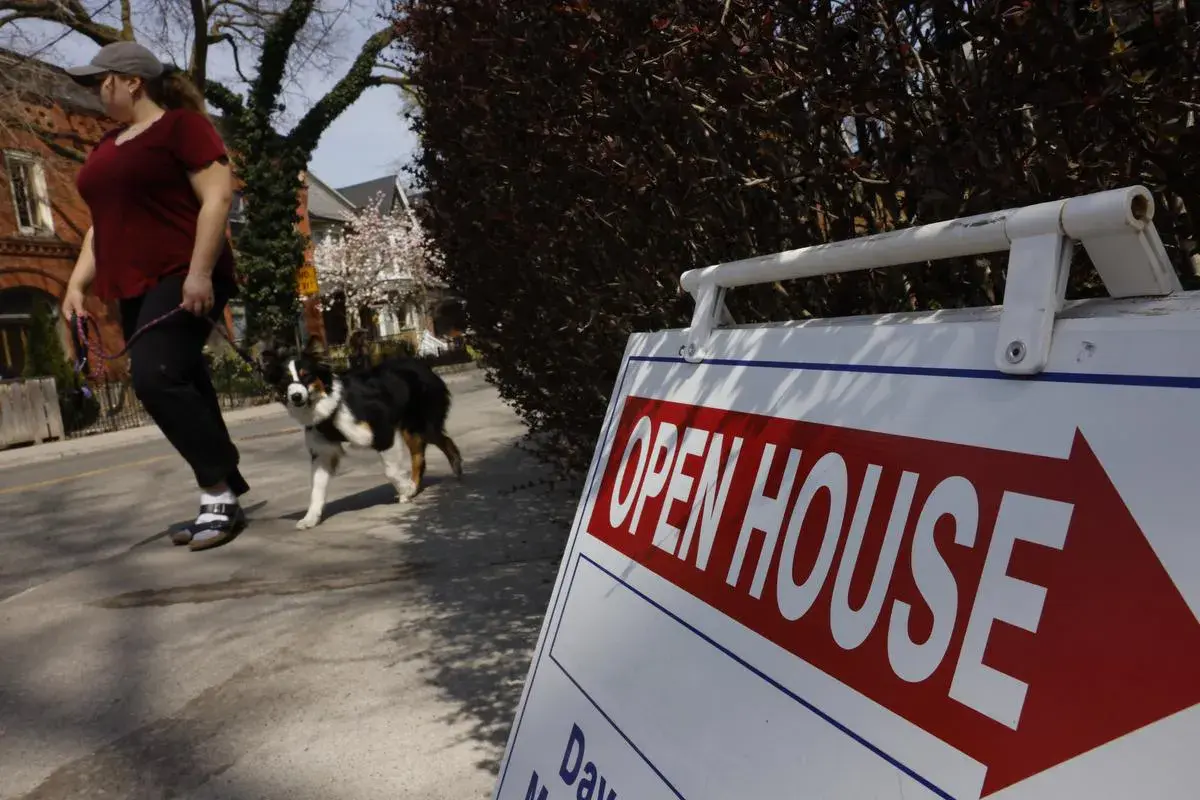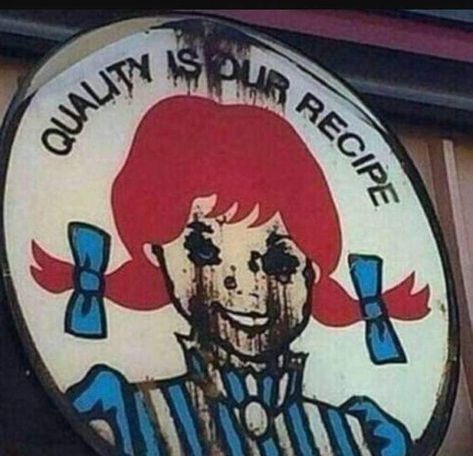This is a variable mortgage issue. No one is lending new mortgages at these amortizations. Fixed payment variable mortgages vary their amortization period as interest changes. The monthly payment stays fixed, unless it hits a threshold when the bank increases the monthly payment to bring the amortization period closer to reality.
AFAIU banks are using this to avoid bankrupting owners who can’t afford their mortgage. Isn’t something like 25% of mortgage debt part of 35 year+ terms now?
Those are a lot of homes that should be foreclosed on and returned to the market.
I didn’t realize this was a thing. I like this way better than letting the monthly payment fluctuate.
Except at a certain rate your entire payment is going towards interest and your principle doesn’t go down at all so its basically throwing money away.
It depends. If your payment is less than rent would be you’re still coming out ahead. And the alternative could be a payment you can’t afford. At least this way you can choose to sell or ride it out and wait for rates to come down instead of getting foreclosed on.
More accurately:
Mortgage payment + maintenance + tax < rent
90 year mortgage? Wait a minute - that’s just a bank-owned rental, that you pay to upkeep? Lmfao.
You own nothing, you are happy
What if I’m not though… Can I get a few more happiness rations?
Yeah that was my first thought - it’s just a rental. I suppose in 40 years you may have enough equity for a bit of retirement money.
CMHC allowing these kind of amortizations is what’s prolonging and worsening the affordability crisis in the country. Enough is enough!
Not totally a CMHC issue here. People/businesses buying up housing as investments is the bigger problem and it should be clamped down on … ie: first 2 properties = basic taxes, increased by 2% for every additional property owned (3rd is basic + 2%, 4th is basic + 4%, etc).
That’s not nearly enough tax to make it effective, you need to increase the amount 25 or 50% for each additional home. Nobody should be using housing as an investment, it’s for living. This should also include any corporations owning investment properties as well.
Unfortunately, I would expect increases like that to just be tagged onto the eventual selling prices.
Then gov’ts should be forced to jump in and start limiting how many units any single entity should own … because gov’ts are supposed to take care of the people who vote for them, not the businesses that donate to them – in a perfect world anyway.
I always fall back on the fact that humans managed to survive millennia without big business while big business wouldn’t last one day without humans. Ergo we are the most important part of that equation.
Yep, I agree. That sort of limit not related to the value is the right way to deal with it.
If it’s purchased as an investment, but still rented out, how does that make housing less affordable?
I fully support vacant home taxes, but the idea that investors (and people often blame foreign investors specifically) are to blame seems flawed to me.
If there was enough housing supply, prices would drop, no?
Housing becomes less affordable because suddenly rent has to cover the owner’s profit as well as the cost of the mortgage. No one is going to invest in housing if there is no profit, and they are going to do what they can to make the profit as high as possible.
A landlord is essentially a middleman between the mortgage holder and the resident. Renting can make sense, especially for people who are not living somewhere for a long time, but currently people are renting simply because there is no way they can afford to buy a house.
There’s nothing saying rent has to cover the owner’s expenses.
If no one rents a home, the owner must either: leave the home empty, or lower the rent. Either way, if the home loses money, a rational investor has to sell. Enough people selling causes prices to drop.
I guess what I’m saying is that taxing people who own multiple properties extra is a really weird fix.
Wouldn’t building more homes be a better long term solution?
If no one rents a home, the owner must either: leave the home empty, or lower the rent. Either way, if the home loses money, a rational investor has to sell.
Doesn’t the investor get to list the loss as a tax write-off?
The investor can always wait. There’s a housing crisis, so people need somewhere to live.
Wouldn’t building more homes be a better long term solution?
We need to do both. Addressing the issue from the supply side and demand side makes sense.
Write-offs are only applicable if some other part of the business is making money
If the entire business is owning a few properties and they are all in the red, there’s nothing to write off against
For small-scale landlords the loss would count against their regular income. For professional landlords, they probably have other properties.
Doesn’t the investor get to list the loss as a tax write-off?
I’m not 100% certain on the details, but yes. A landlord can reduce their taxes on other income but that doesn’t mean they aren’t still losing money.
The investor can always wait.
That’s only true if the expected increase in value covers the cost in carrying the property. If property values don’t increase dramatically over time, waiting just loses money.
There’s a housing crisis, so people need somewhere to live.
Exactly what I’m saying. Demand is, for the most part, inelastic. Each person requires some amount of space. Owning multiple properties that are occupied satisfies housing demand as much as each person owning their own home. As far as I figure, only vacant homes artificially inflate home prices/rent.
I don’t mean to say that people should be stuck renting forever. Everyone should have the opportunity to own their home.
Owning multiple properties that are occupied satisfies housing demand as much as each person owning their own home. As far as I figure, only vacant homes artificially inflate home prices/rent.
As we said above, the renter has to cover the costs of the property, plus the landlord’s profit.
Investors overbid for properties at yesterday’s low interest rates that aren’t sustainable at the current rates but at yesterday’s rents. Investors didn’t take into account that interest rates can rise. Let me rephrase. Investors bet that interest rates will stay low and thus took on huge mortgages so they could outbid another investor or wannabe homeowner. This bet didn’t pan out. Instead of taking a loss and selling the properties, they increase rents to what makes the properties sustainable at today’s rates. That’s it. Investors are asking for renters to cover their failed bet. The amount of housing is a more or less fixed in this equation given the short time frame these effects occurred on. That’s how this investor behaviour is making housing less affordable. Moreover it has a larger negative effect on the economy by tying up income into an unproductive asset class instead of having it flow to productive areas of the economy. And so the argument is made that we should curb this behaviour by helping investors make the decision to sell, in the short term. That would lower prices and allow wannabe homeowners to buy as well as more rational investors who have the capital to buy and sustain at today’s rates but lower rents.
It’s important to note, said Sialtsis, that major banks aren’t handing out 90-year mortgages when people first buy a home; the changing amortization period is only happening on existing variable-rate fixed-payment mortgages.
FTA
I think the original commentor is saying there should be a limit to variable rate amortization extensions. If the owner can’t afford the current rate, then the fall into arrears.
Well the fixed-payment mortgages aren’t exactly fixed. They will still get adjusted when the payment covers very little to no principal. For example mine got adjusted to get the amortization back in check when that happened. Maybe that’s a choice the banks make, maybe CHMC dictates what’s allowable or required there. If banks have to adjust the payments like they did for me, eventually the foreclosures will show up. Unless most of them are just under their trigger rates and the prime doesn’t push them over the edge for a while. 🤔
I don’t disagree in the sentiment that payments should adjust and the non-viable ones should get foreclosed on, in general.

Generations attached to a single real property… aint that serfdom?
Happens in the uk
It’s the violence inherent in the system
And that bit of repression
The other day, there was a news segment about how expensive it is to live in my reigon. Mind you, my reigon isn’t exactly known for having great hospitals or infrastructure. We have discarded drug paraphernalia littering children’s parks and streets. We have a lot of random, unprovoked violence. Robberies, muggings, assaults, murders, you name it. People even steal toddler tricycles to sell for scrap money. It’s pathetic how far this reigon has fallen. No good mental health resources or rehabs to help people, either. We do have a shelter that police are nearly constantly called to. The whole system is broken.
For the joy of owning a home in this shithole, they expect that you would need an annual household income of over 200k.
I’m getting to the point where I’m starting to feel a lot of anger when certain people complain about young people having less kids.
How are we supposed to support intergenerational wealth if we don’t have intergenerational debt?
Home owners lose again, Lews Therin.










